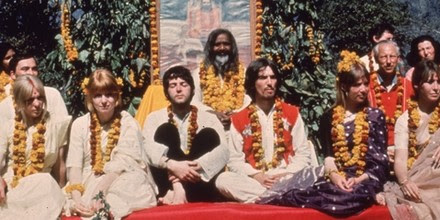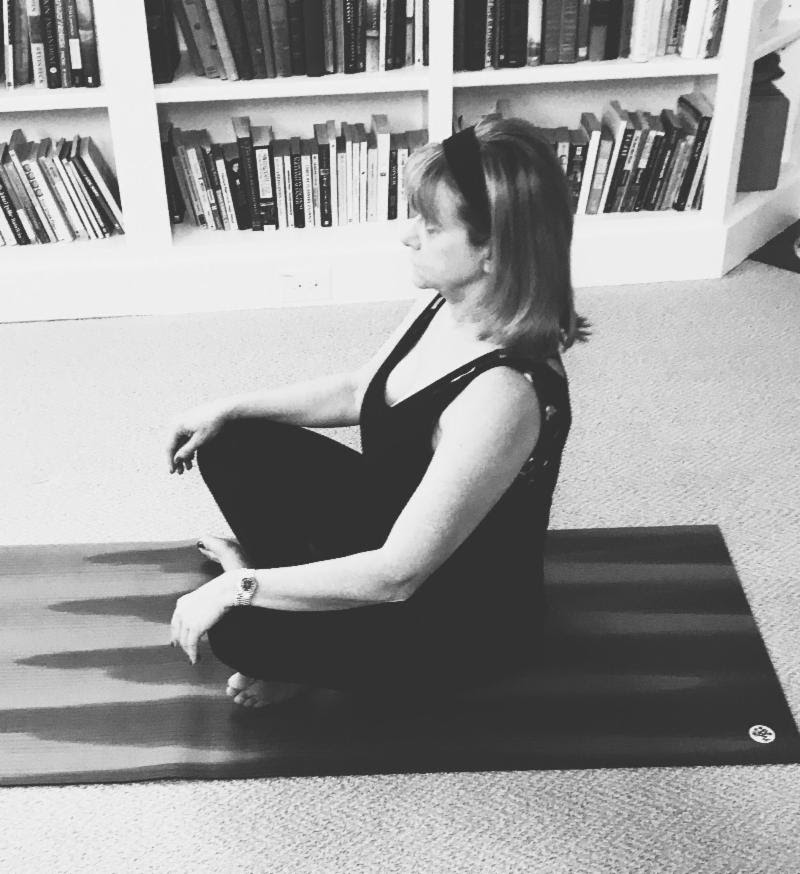Spring 1972. My freshman year at Harvard. I was walking through “The Square,” where the street was filled with students still dressed in the tie-dye that the ’60’s made fashionable. Young men and women moved in circles, holding placards for their current protest; SDS was passé–nevertheless this protest would shortly have its leaders pounding on the president’s desk, demanding that the Corporation divest itself of its investments in Exxon, which was doing business in apartheid-torn South Africa. Eventually, my fellow students would occupy University Hall for over a week and shut down school.

But what I remember most about that singular warm day, with the press of people and the scent of the street’s heated macadam so pungent, was the chanting that came from the sidewalk in front of The Coop, the store where everything could be bought, from mouthwash to the University’s logoed crimson sweatshirts. The chant was almost musical and accompanied by the jingling of tambourines–a mantra sung over and over by men and women in saffron-colored robes, the men’s heads shaved, both with their feet bare on the pavement:
Hare Kṛṣṇa Hare Kṛṣṇa
Kṛṣṇa Kṛṣṇa Hare Hare
Hare Rāma Hare Rāma
Rāma Rāma Hare Hare
At the corner of the building, several sat with their backs against the wall with their eyes closed, hands cupped on their bent knees as they meditated. I did not know the meaning of the words, but I sort of got the message when, back in my dorm later that afternoon, I asked my roommate about the Hare Krishna, as they had become to be known: her interpretation of the verses was something like God is among you. George Harrison’s “My Sweet Lord” played out a window into the spring green of the Yard, with a melody sweet and upbeat, its lyrics repeating the Maha Mantra of the group on the corner. The song topped the charts that year as the number one song by an ex-Beatle.
It’s been a long time since I thought of that day. Why do I remember it so vividly now? Perhaps it’s because I’ve discovered that I’ve something in common with the mystics who chanted on the corner throughout all those years I came and went in Harvard Square. Religion has always held meaning for me, both as the Christian I was born to be, and the Jew I became upon my first marriage.

This year, as part of my New Year’s “intentions” for diet and exercise, of which I wrote here in January, I have also taken up the practice of yoga, which is, to me, not merely a series of rigorous postures designed to stretch and tax the body, but also a way of looking inward, of seeing a “God” whose most essential nature is not affected by any particular interpretation, who is present everywhere, and transcends time and space. Sound familiar? Maybe that’s because this is the basis for every religion in the world: Hindu or Christian, Jew or Muslim or Buddhist. For those who believe, we all address our “Gods” in the same way, with words that affirm his or her “oneness,” omnipotence, and power.
I am practicing yoga every day, eager for the sense of peace it brings to me after a long session writing at the computer. And, as I once did back in college, I have begun to meditate again. I had a boyfriend who did so daily and eventually I followed his example, only to fall away from it a few years later. Now I am rediscovering with each quiet breath that meditation is a way of walking the mind home, of emptying the busy world within to listen to the comfort of our own silence. Yoga, too, does this for me with my body, as I inhale deeply and slowly and then send my exhalation to muscles that tense with effort. It is physical meditation of a sort.

My yoga instructor recently made a pithy observation as our class stretched and strained to bring a deeper bend to our knees. He stopped us and said: “it doesn’t matter how far you go, but rather how you go.” I find this to be true in all of life, and it’s good to be reminded. When Brad and I are out on our sailboat, and the wind lulls, and I grow impatient with simply bobbing on the flat water, he always points out with a smile that it’s not the destination that’s the goal, but instead the pleasure of the passage.
Yours,

Have a comment or feedback? Talk to Linda!

